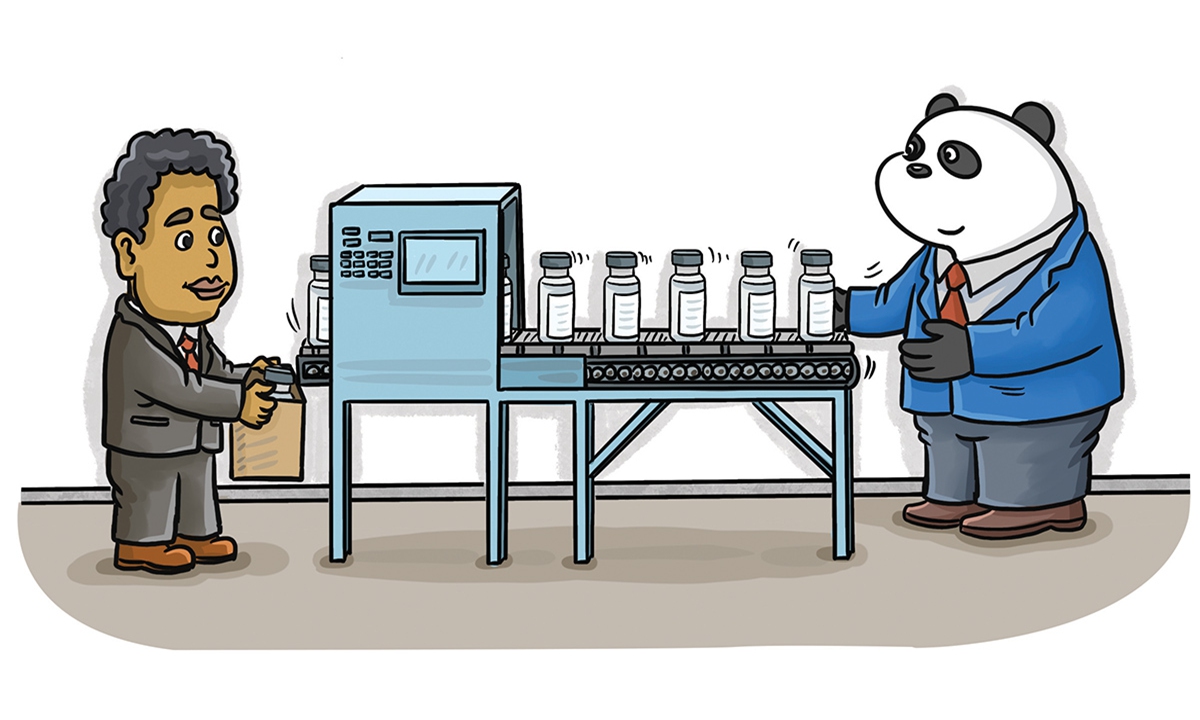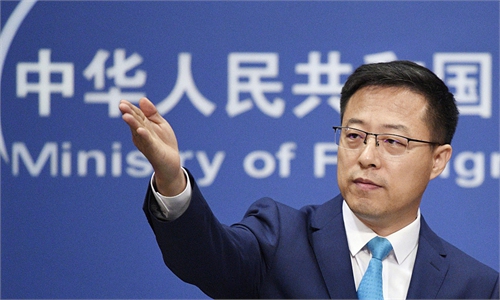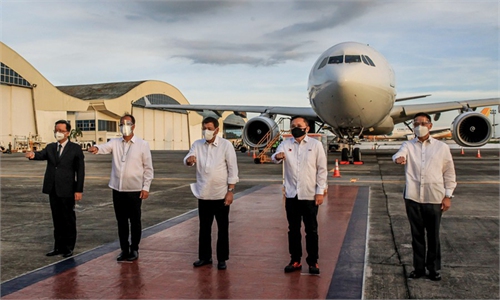COMMENTS / EXPERT ASSESSMENT
China supports Africa’s recovery through vaccine cooperation

Illustration: Xia Qing/GT
Egyptian Health Minister Hala Zayed on Sunday revealed that the country will start manufacturing China's Sinovac COVID-19 vaccines locally in June, becoming the first country in Africa to have the production capacity for the badly-needed vaccines. Zayed said that the first 2 million doses will be produced in June, and 40 million doses will be produced in the first year, according to the Xinhua News Agency.This marks a new milestone for cooperation between China and Africa during this once-in-a-century global health crisis. Such cooperation will greatly help the continent's epidemic prevention and economic recovery. In stark contrast, some in the Western world are busy hoarding vaccines.
With a profound history of friendship, China has been promoting cooperation with Africa throughout the pandemic. As of early March, China shipped 120 batches of epidemic prevention supplies to Africa, sent medical expert teams to 15 African countries and offered vaccines to 35 African countries and the African Union Commission.
Moving vaccine manufacturing to Africa will reduce the cost of logistics and storage and help level up the accessibility and effectiveness of vaccines in the continent, especially when many regions in the world are witnessing resurgence of the virus and the fallout of the epidemic in Africa has kept emerging.
Moreover, the move will help boost economic recovery of local partners and the broad continent by exploring new industrial capacity cooperation with China. Vaccine production can also serve as a model for further capacity cooperation between the two sides during the post-pandemic era.
China and African countries have enjoyed close cooperation over the past several decades. Since the establishment of the Forum on China-Africa Cooperation (FOCAC) 20 years ago, bilateral trade surged more than 20 times, and China's direct investment in the continent skyrocketed over 100 times.
Bilateral economic cooperation goes beyond the rapid growth of China's aid toward Africa. Besides the very fast growth rate of aid in the past decade, collaboration between the two sides has entered a new stage with multidimensional channels to enhance.
For instance, the second China-Africa Economic and Trade Expo will be held in September in Changsha, capital of Central China's Hunan Province, under the FOCAC mechanism. That will help increase African exports to China, which in return will boost internal momentum for economic growth in African countries.
In contrast to China's growing aid, both the willingness and capability of the Development Aid Committee of the Organization for Economic Co-operation and Development (OECD) to provide aid to Africa have seen a declining trend. During the pandemic, regrettably, some Western countries such as the US have created chaos in vaccine distribution by hoarding orders or restricting exports of raw materials.
The Biden administration has recently vowed to back the WTO's COVID-19 vaccines patent waiver proposal. However, the move has been widely suspected to be more of an empty promise out of political calculation, attempting to avoid international criticism for hoarding vaccines and stopping or delaying exports of its vaccines to other countries. The US has been drastically lagging behind in fulfilling its pledge made by Biden to lead vaccine distribution around the world.
Still, that did not stop the US from leading a small clique of Western allies to vilify China over vaccine cooperation between China and other developing countries. But the tangible benefits received by the countries through cooperation with China cannot be erased, and the mutually beneficial relationship between China and Africa will not be sabotaged by ill-intended anti-China forces.
Indeed, it should be a welcome step if the US shows gesture to take the responsibility of the world's largest economy to help improve the accessibility of vaccines across the world, but it should not be just empty promises. Vaccine nationalism and other political schemes should be abandoned by all countries and regions in order to boost the effective recovery of global economy.
The article was compiled based on an interview with Song Wei, an associate research fellow at the Chinese Academy of International Trade and Economic Cooperation. bizopinion@globaltimes.com.cn



